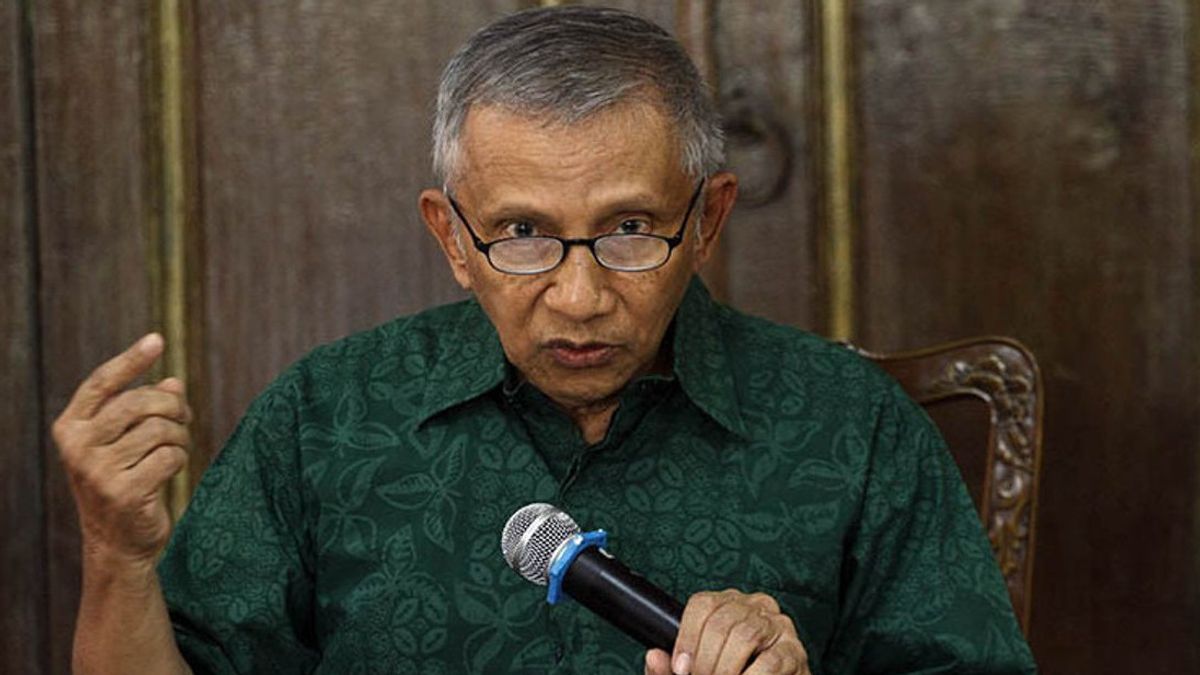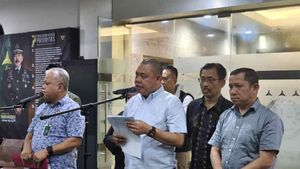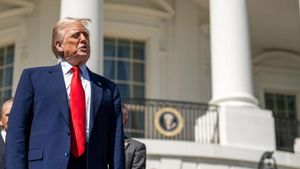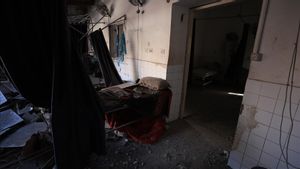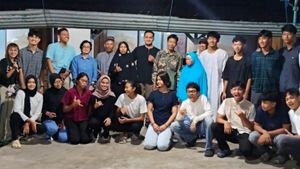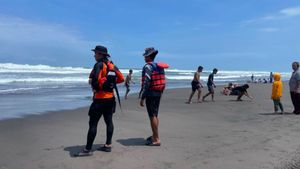JAKARTA - Through a video, Amien Rais commented on the new normal discourse that has recently been echoed by the government. For Amien, in the midst of the COVID-19 pandemic, a new normal lifestyle is common.
However, this politician reminded the new normal that was echoed by the government should not become a tool to deceive the public. Moreover, in a normality, said Amien, usually there are standards or norms that apply.
"What is normal usually has standards, norms. There are regular patterns and reference points of reference. These don't exist at all," Amien said as quoted by VOI from a video uploaded to his Instagram account, Monday, May 25.
"Because of that, brothers and sisters, don't use this anymore. This could trick us. We have been consumed by our thinking, then anything is considered normal," he added.
Amien understands that the post-epidemic new normal is to always use a mask, apply distance, and implement various other health protocols. It's just that, he doesn't agree if there is a shift in the meaning of the new normal in the midst of economic problems that make society even more difficult.
"If then that unemployment is expanding, it is new normal, rural and urban riots due to hunger are new to normal, adding to debt continues to be new normal, then the economy of our country is becoming more and more normal, now that is what I think has gone too far, huh,"
Amien Rais
Amien asked the government to no longer entertain people who were in trouble due to the COVID-19 pandemic with the term new normal. Given, at this time the condition was getting worse and getting worse.
"Let us be a smart nation, the leaders must also be smarter, sorry, because we are really in a very tough atmosphere, so don't be entertained by the abnormal new normal," said the former chairman of the MPR.
Reportedly, the government continues to call people to be able to live in a new, normal way or new normal in the midst of the COVID-19 pandemic. Most recently, through the Ministry of Health (Kemenkes), the government has just created a protocol on controlling COVID-19 in the workplace, offices, industry in a pandemic situation.
This decision was issued by Minister of Health Terawan Agus Putranto to break the chain of transmission of COVID-19 in the business world and working community. Given, the large number of the working population and the large amount of mobility, as well as interactions due to work activities, are very risky of transmitting the virus.
"The workplace as a locus of interaction and the gathering of people is a risk factor that needs to be anticipated," Terawan said as quoted from his written statement on Monday, May 25.
In addition, Terawan also assessed that the world of work and business cannot forever limit them because there is the spread of COVID-19. The economy, he continued, must continue to run even though some areas are currently implementing Large-Scale Social Restrictions (PSBB) in accordance with Government Regulation Number 21 of 2020.
"For this reason, after the implementation of the PSBB with the ongoing COVID-19 pandemic conditions, it is necessary to make efforts to mitigate and optimally work place readiness so that it can adapt through changes in lifestyle in the COVID-19 or new normal situation," he explained.
There are three points that regulate workers and the industrial world to continue their activities in the midst of a pandemic.
Here are three guiding points:
1. Guidelines for Management Policies in Prevention of COVID-19 TransmissionManagement is asked to constantly monitor and update the development of information about COVID-19 in its area. As well as forming a COVID-19 Handling Team at the workplace consisting of the Head, the staffing section, the K3 section and Health officers which is strengthened by a Decree from the Head of the Workplace.
The leadership or employer provides policies and procedures for workers to report any suspected cases of COVID-19 (symptoms of fever or cough / runny nose / sore throat / shortness of breath) for monitoring by health workers.
Management is also asked to set up a work from home system and determine which essential workers should come to work or not.
2. Guidelines for essential workers who must continue to work during the PSBBAt the entrance to the workplace, take temperature measurements using a therma gun, and before entering work, apply the COVID-19 Risk Self-Assessment to ensure that workers who will enter work are not infected with COVID-19.
The working time arrangement is not too long (overtime) which will result in workers having less time to rest which can lead to a decrease in the immune system / immunity.
If possible, there should be no triple shift or workers working from night to morning. If forced, three shift workers must be arranged so that those who work are mainly workers less than 50 years old.
Workers are also required to wear masks from the time they travel to or from home and while at work. ask workplaces to regulate the nutritional intake of workers' diets, and facilitate a safe and healthy workplace. Including paying attention to physical distancing in all work activities. Setting the distance between workers at least one meter for each work activity and setting the table, canteen chairs. If possible, workers can be given vitamin C supplements.
3. Socialization and education of workers regarding COVID-19The Ministry of Health requires workplaces to provide intensive education to all workers and families about the COVID-19 pandemic. So that workers can take preventive action to prevent disease transmission independently. Educational materials about New Normal can be accessed at www.covid19.go.id.
The English, Chinese, Japanese, Arabic, and French versions are automatically generated by the AI. So there may still be inaccuracies in translating, please always see Indonesian as our main language. (system supported by DigitalSiber.id)
